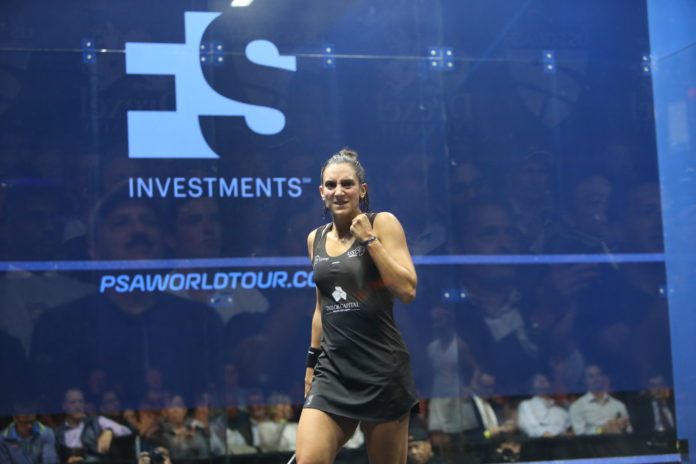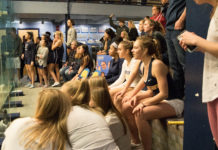by Eric Zillmer
Director of Athletics and Pacifico Professor of Neuropsychology, Drexel University
The 2019 FS Investments U.S. Open Squash Championships, hosted by Drexel University, showed off the sport at its finest. Great crowds, matches, players … and eminent minds? It is easy to appreciate the physical skill of the world’s top players: Amanda Sobhy‘s power, Ali Farag’s agility, Simon Rösner’s cross-court shots, or Nouran Gohar’s all-around game. Harder to appreciate is the fact that champions also have great cognitive skills. From a sport-psychology point of view, the Open was also a feast to behold. Below is a sampling of important mental processes that I observed at the Open, essential for winning championship point at the Open or at your club.
Cognitive Efficiency
Professionals make the game look easy. Their racquet skills and physical movements on the court look effortless. The same is true for how they approach the mental game. They have learned to keep everything cognitively simple as well. The pro game is incredibly fast and deceptive. Squash is an invasion sport, meaning that you need to pay attention to your opponent as well as the ball. That is why it is essential to think as efficiently as is possible. Behind the complexity of the pro game, there is simplicity. Learn how to reduce your mental approach to a match, a game or a point to one thought at a time.
Flipping the Script
Everybody loves a good comeback. Twenty-two year-old Nouran Gohar fought off championship ball in the third game and claimed her first Open title in a monumental five-game comeback. How did she do it? Negative thinking is deadly in sports. For example: “I am going to hit the tin with my next drop shot and lose the match.” Madeline Barlow, Drexel’s team performance coach, calls it flipping the script. Champions use this self-talk technique as a refocusing strategy on command: “If I execute my drop shot, I will win the point.”
Discipline
Watching the pros prepare for a match, it becomes obvious that they have learned to commit themselves to mindful practice. They know this is where the real work has to be put in. The length of practice is not as important as is their focus and their workload. Watching pros practice is impressive and is one of the best kept secrets of the Open. Focus on practicing with a purpose.
Body Language
This is my only criticism. Pros sometimes show their emotions on their sleeve and it most often results in a smash up. Usually, though, the best players seem unfazed and confident. Drexel’s assistant squash coach Dylan Cunningham calls this a deep psychological presence. I agree. It is the psychological space where pros operate from, especially under pressure. Research has shown that even eight-year-olds can predict the winner of a sporting event based on the athlete’s body language before the match has even started. Race-car drivers often talk about where your eyes go, so does your car. Same for squash, if you show weakness, it’s over. Cognitive behavioral theory relies on the idea that what you think is going to determine how you behave. Body language is a reengineering of this. That is, how you behave can also affect how you think and feel. Study Greek classical sculptures and you get a pretty good idea of how to adopt a strong athletic pose. My guess is that most pros are perfectionists and thus they may be vulnerable to irregularities during the match. But they should know better.
In life and on the squash court, look, act, and think like an athlete.





